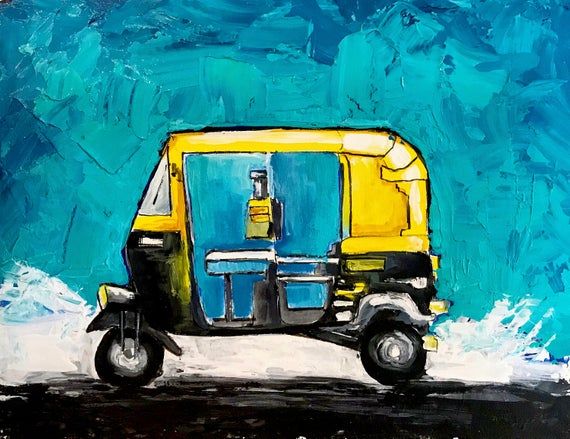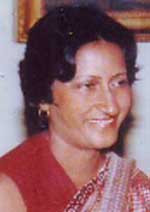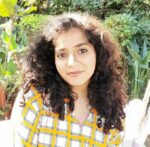Translated from the Hindi by Ayushee Arora

Image used for representation.
Anxious and restless, Surinder Kaur was standing outside. There was no ride in sight. She glanced at her watch. It was 12 o’clock. If Satveer’s bus reached before she could, he would fret about standing alone. But what on earth was she supposed to do? Suddenly, she saw an autorickshaw approaching in the distance. Seizing the opportunity, she hailed the auto down, “Auto, auto, stop!”
The driver did stop, but not because of her call. Crossing the street, Surinder Kaur was making her way over to him but before she could utter even a single word, the driver said, in a denigrating tone, “This rikshaw is not empty!”
Surinder Kaur was on the verge of losing her temper, “It is clearly empty.”
“I told you, it’s not empty,” the driver practically growled at her.
Surinder Kaur was getting visibly agitated. This strange man was driving an empty autorickshaw, claiming all the while that it was not, in fact, empty. This was not uncommon in these parts. She did not really care for confrontation, and would usually not have engaged with the stubborn driver, but desperate times called for desperate measures. “I need to reach someplace urgently. I will pay more than the usual fare.” Saying this, she attempted to sit in the autorickshaw.
Obviously annoyed, the driver said in a loud voice, “We are not going. I just told you that!”
Surinder Kaur’s foot was hovering midway in the air when she heard his words. The thought of Satveer standing alone on the road made her fidgety and anxious. She cast a glance around and was dismayed to find that not a single other vehicle was in sight. And here, this man was driving an empty rickshaw! She looked appraisingly at the driver again. He was a middle-aged, shawl-wearing Sikh man, wearing a green turban, and he was holding fastidiously and obstinately onto his words. Surinder Kaur thought for a moment, and then with a deft hop, sat in the autorickshaw.
“I have told you already, I am not going. It is time to return this vehicle, and I also need to eat my meal. Get down quickly!” Saying this, he started the rickshaw. Perhaps the vehicle was in gear and had come to an abrupt halt. Surinder Kaur noticed that the man was speaking a mixture of Punjabi and Hindi. She made one last attempt.
“Brother, you will be going straight. I request you to drop me at the crossing. I will find another ride there. But it is imperative that I go.”
Looking closely at her, the driver had started the vehicle and was about to go.
“Where do you need to go?”
“You just drop me off at the crossing. I will find another ride there.” Thinking to herself that bickering with him was useless and that she would find another means of transport at the crossing, one way or another, she sat in the autorickshaw almost forcefully.
“Still, where do you have to go?”
“R.K. Puram.”
“Alright, sit comfortably.” The driver had put on a tape of the Gurbani and was tapping his fingers to the beat. As the vehicle picked up speed, it lurched over a pothole on the road. “A little slowly, please.”
“You sit back and relax. We will reach with all of God’s grace and joy.”
As soon as they reached the crossing, Surinder Kaur made to stop him.
“You can stop here.”
“Now you keep sitting. No rides are to be found here.”
Hearing his words, Surinder Kaur sat back, reassured and comfortable. A light drizzle had started. Once again, Surinder Kaur started worrying about Satveer, who would get drenched standing alone on the road, if the bus reached before she did. While lost in her thoughts, she noticed that the driver kept looking at her continuously in the rear-view mirror.
“Should I cover the open portion of the vehicle, since it is drizzling?”
A jolt of fear ran through her.
“No.”
Halfway through drawing the curtain, he withdrew his hand, “Sit in the middle, else you will get wet.”
After some time, he asked, “Sister, you are from Punjab?”
“Yes,” Surinder Kaur replied, rather unwillingly.
“Which village in Punjab do you belong to?”
Surinder Kaur felt that someone had opened up raw wounds with a scalpel. Controlling her emotions with great effort, she said neutrally, “Singhwa.”
“Singhwa?!” He seemed to jump in his seat, as he turned around hurriedly to look back at her.
Explaining to him, she said, “Yes, it lies between Ludhiana and Jagrawan…” Her sentence was cut short by his snort of laughter. Puzzled, Surinder Kaur asked him, “What happened?”
“I am also from Singhwa and you are telling me the location!” In a hurry to finish the conversation, Surinder Kaur just replied with a non-committal, “I see.” Addressing her once again, the driver said, “Actually you have to cut off your long tresses, so maybe that is why I was not able to recognize you.” Surinder Kaur found his over-familiarity a little disconcerting but stayed silent.
“What else does one do also? In a foreign land, one has to adopt foreign customs, foreign languages, and foreign clothes. After the riots of ’84, I have cut off my beard too.” He grew rather despondent and quiet after this statement.
Surinder Kaur felt like asking him, “And then…?” but held back, perhaps seeing his evident sadness or perhaps telling herself that such familiarity with a stranger was not appropriate.
“Where is your house there?” he inquired. Surinder Kaur felt that all these questions were like serrated knives against the edge of her throat.
“Just ahead of Khalsa College, Chaudhary Ranjeet Singh’s haveli.”
“He was your father?”
“No, grandfather.” Remembering what had happened in the past, Surinder Kaur felt like her heart was in her mouth. She made a steely resolve that if the driver continued this thread of conversation, she would get off the autorickshaw, circumstances be damned.
“When did you leave the village, and come here to Delhi?”
Surinder Kaur breathed a sigh of relief. “I came here immediately after my marriage. It has been about fifteen years now.” Out of spite, Surinder Kaur told him everything in great detail. She thought to herself that it was better to give all the information all at once, rather than wait for him to ask her questions one by one. She had given him all the details she could, and now he could do what he pleased with said details.
“That is good. And what does Sardar Sahib do?”
Surinder Kaur understood all too well the undertones of his question. She said, “I am married to a Hindu. He works with a private firm.”
“That is good to hear, sister. May the Lord always shower his blessings on you.”
Lifting his head up in a prayer of sorts, he half-mumbled, “Lord, keep them happy.”
Surinder Kaur felt like her heart was constricting in her chest, but she could not bring herself to not answer his questions. He was now asking her if she had any children.
“I have three children. The elder two are girls, and the youngest is a boy. Need to pick him up from the bus stop.”
“I see.”
Surinder Kaur observed that it had rained quite heavily here. She was worried about Satveer. But then, much to her relief, she saw that Satveer had gotten off the bus, and was patiently waiting under the covered area of a nearby shop.
“Brother, please stop the vehicle here.”
He had barely turned the vehicle and parked it under a covered portion when a sentry on duty immediately sidled up and chided him, “Park the autorickshaw at the autorickshaw stand. Parking is not allowed here.”
“I know. Let the passenger get off.”
The sentry was irate and repeated, “Did you not hear me? Park the vehicle over there!”
“Sentry, do you not realize that it is raining? Why do you want the passenger to get wet?” Turning back to look at Surinder Kaur, he said, “Sister you get down, please. Hold on a minute, there is a spot of water here. I will take the vehicle to the side of the road so that you do not get wet.”
“It is all right, do not worry.” Saying this, Surinder Kaur tried to get off, but the driver had already turned the vehicle around, and parked it near the edge of the shops.
“You go and get your boy. I am standing right here.”
For some reason, the sentry also said nothing and stood quietly at a distance.
As she was coming back with Satveer, a thought had struck her. “Brother, you go ahead now. I will find another ride from here. You have to give the vehicle back, and you also have to eat.”
“You come and sit, please. Where will you look for another ride in this rain, with your child?”
He had caught hold of Satveer’s arm and had firmly placed him on the seat of the autorickshaw, tucking his bag next to him.
“What is your name, son?”
“Satveer.”
“I see. May you live a long and happy life, son. Sister, you also please sit.”
He turned the vehicle around, and carefully drove over a puddle, so as to avoid splashing the passengers.
“Sister, you must be going to the village often?”
A loud sob escaped through the prism of Surinder Kaur’s chest. She could not control herself any longer, and her emotions spilled out in a torrent.
“Why would I go there anymore? I have nobody left there anymore. My mother, father, and two young brothers were all mercilessly killed off. Those heartless bastards shot them all with guns. They finished everything. Everything.”
He had fallen silent. Surinder Kaur said, “Please stop here.”
She had gotten off and was also getting Satveer off the vehicle. The driver too had come and stood near the front of the vehicle. After a heartbeat of silence, he asked, “You stay here?”
“Yes, right ahead. All right brother, thank you so much.” Looking at the meter, Surinder Kaur thrust a ten rupee note at him.
“What are you thanking me for? And I will not accept this money. You keep it.”
When Surinder Kaur protested, he held up his hand to silence her.
“Listen, sister, just wait for a minute.” He took out two bundles wrapped in cloth from the backseat of the vehicle and gave them to her.
“You please keep this. Harvail Singh had come from the village today morning, saying he wanted to eat saag and makki di roti made by his sister-in-law Gurmeet Kaur. He also promised that he would regale Harbhajan and Harbans with tales of the village. He did not know that after the riots of ’84, there is no more Gurmeet Kaur, and no more Harbhajan or Harbans. They were all burnt alive together. I came back home in the evening, only to find that nothing remained. I did not tell anyone. Had the people of the village got to know, the fire of hatred that started here would have reached there too.” Suddenly, he started heaving and was making sounds that lay between dry sobs and hysterical laughter.
“Now what? Lie somewhere, eat somewhere else. All is the Lord’s will now, whether he wants to keep or dispose of us.”
Placing a hand tenderly on Satveer’s head, he withdrew a fifty rupee note from his pocket and gave it to him.
“Buy some sweets with this, son.”
A bewildered Surinder Kaur was about to stop him saying, “What are you doing, brother? Do not do this, please…” She was cut short by the driver who said, “No, sister. And never again will you say that you have nobody left in the village. I am there. Your brother from Singhwa. Farewell, sister. May the Lord protect and shower his blessings on you always.” He turned the autorickshaw around and was gone in a trice. Dazedly, Surinder Kaur was standing with her mouth agape. Slowly, as if coming out of a stupor, she tucked the cloth-wrapped packages under her arm, grabbed Satveer’s finger, and made her way home. The air was suffused with the fragrance that came from the cloth–wrapped packages. The fragrance of saag leaves plucked freshly from the fields, along with the fragrance of fresh home-ground makki flour, was permeating through to the very depths of her soul, from her nostrils.
Satveer asked her, “Who was that, mother?”
Surinder Kaur hesitated for a second before answering briskly, “He was your maternal uncle. My brother. Come, let us get home fast now.” Holding on to Satveer’s finger, she opened the gate and went inside.
Also, read four Italian poems written by Paolo Fichera, translated into English by Mikica Pindzo, and published in The Antonym:
Follow The Antonym’s Facebook page and Instagram account for more content and exciting updates.



























0 Comments